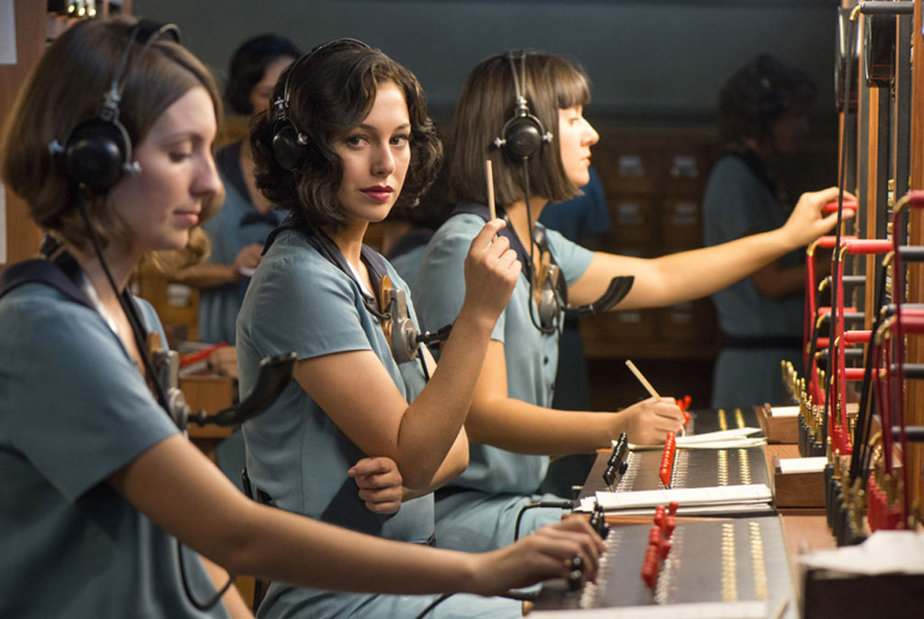Thursdays feel different in Spain, as do Saturday mornings, and I couldn’t put my finger on why for a good long while. It finally hit me one Thursday evening as I walked out of my last class of the week exhausted and ready to curl up under my covers and watch the latest episode of This is Us.
“But wait! I’m in Spain!” I realized, “And I can’t watch This is Us or Jane the Virgin or Modern Family until December! Whatever am I going to do?” Okay, full disclosure, I’m dramatizing this a bit, but I was really in need of a TV show to watch to fill the void of melodramatic television in my life. Luckily, I found Las Chicas del Cable (“Cable Girls”).
Las Chicas del Cable’s entrance into my life was serendipitous. Being in Spain this semester for study abroad, I’ve been trying to fully immerse myself in the experience and culture here (cue “abroad changed me” cliché), I wanted to watch a show in Spanish, but wasn’t looking to just re-watch Friends with Spanish dubbing this time—and then I found Las Chicas del Cable and life has not been the same since.
Las Chicas del Cable is the first Netflix original series to be produced in Spain. All of the dialogue is in Spanish, and the actresses are Spanish as well. This series should really be watched in Spanish with English subtitles (or just in Spanish if you’re trying to learn the language like me!). No offense to the actors Netflix hired to dub the series in English, but it is far superior in Spanish, with the full range of emotions that the original actors’ voices express. With that being said, though, when watching Las Chicas del Cable, I tell myself I’m improving my language skills, but, let’s be honest, I really watch it for the drama.
The show begins in 1928 and follows Lidia (Bianca Suarez), Carlota (Ana Fernández), Ángeles (Maggie Sivanto), and Marga (Nadia de Santiago) as they work at the newly opened National Telephone Company in Madrid, navigating the challenges and joys that life throws at them. These characters are what make the series shine. Lidia (really Alba, but I hesitate to spoil too much here about why she has two names) is the whip-smart leader of the group who you never quite know whether to trust. Carlota has a fiery spirit and is by far the most resistant of the group to the restrictions placed on her and those of her gender. Ángeles may appear timid, but it is only because of the abusive husband she faces when she returns home. And finally, there’s Marga, my favorite of the bunch. Watching sweet Marga grow from a scared woman navigating the big city to a confident woman relishing her first taste of independence has been one of my favorite parts of Las Chicas del Cable.
The viewer roots for each one of them to find love, to resist the restrictions that being a woman in the 1920’s places on them, and to not get into too much trouble. But, of course, it wouldn’t be a drama without a few (many) dumb decisions on the characters’ parts. It’s because the viewer is so invested in the characters that it’s so frustrating when they can’t seem to move forward in life, rejecting the men they really want to be with and always assuming the worst of situations. I can’t help but think as each episode passes how so many of the issues the characters face could be fixed with some healthy communication—but, of course, that wouldn’t be as interesting to watch. Some healthy communication would mean that Marga and her love Pablo (Nico Romero) would get together instead of repeatedly professing their love and breaking up as Pablo’s manipulative ex-fiancé plots to keep them apart. And healthy communication definitely would eliminate the oh-so-fun to watch love triangle between Lidia and the two leading men of the National Telephone Company, Carlos (Martino Rivas) and Francisco (Yon Gonzalez) (I’m Team Francisco, in case anyone is wondering).
But healthy communication couldn’t fix all of Lidia, Carlota, Ángeles, and Marga’s problems, and Las Chicas del Cable does an excellent job integrating struggles that women in 1920’s Spain faced. The viewer has to watch the unwelcome sexual advances the female employees of the company have to deal with on a daily basis as well as the sharp gender divide between the men in positions of power and the women who can never hope to rise above the role of telephone operator. Through the story of Ángeles, the viewer learns how the regulations placed on marriage by Spain’s 1889 Civil Code prevent a woman from divorcing her husband even if he is beating her every night. And the viewer sees through Carlota leaving her conservative family how rare and new it is for women to be allowed to live an independent life. Highlighting the challenges women faced in this era allows for the audience to fully empathize with the ways in which women have continuously been subjugated to ridicule and even abuse, and makes the largely female cast that much more influential.
Las Chicas del Cable is fun to watch, it’ll teach you a thing or two about Spanish history, and if you’re trying to learn Spanish it’ll help with that too. If it is not on your list of shows to watch while hibernating in bed over winter break, I strongly suggest changing that right now.






